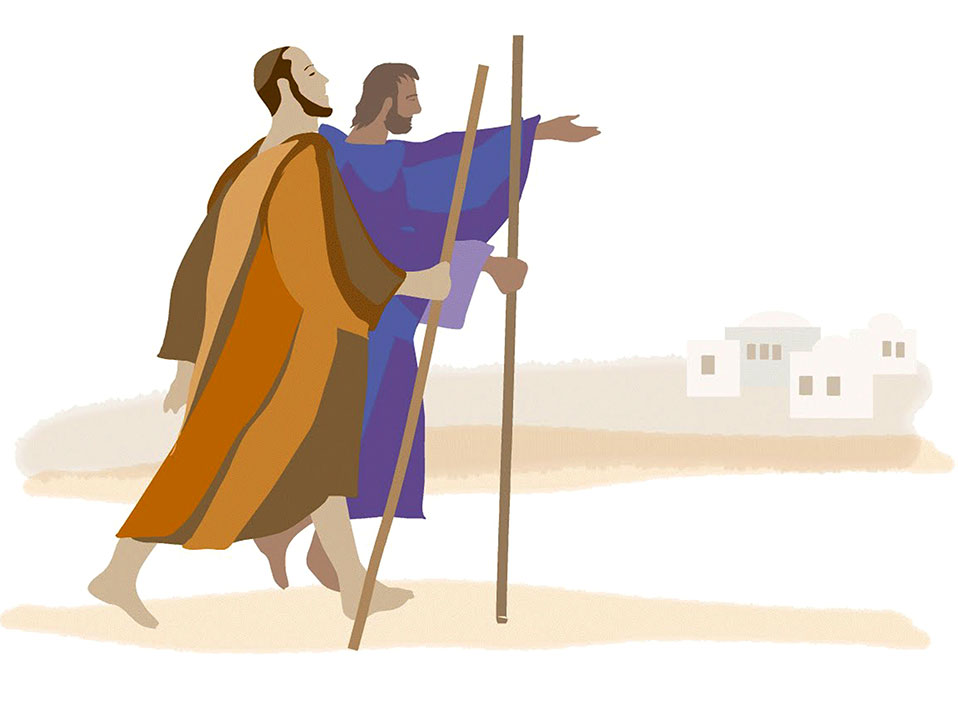“Amen, I say to you, whoever does not accept the reign of God like a child will not enter it” (Lk 18:17).
As Luke tells the story, Jesus is on His way to Jerusalem (Lk 9:51), and He is about to deliver His third prediction of His suffering, death, and resurrection (18:31-33). Much of His teaching is now concerned with the reign of God. This section of the Gospel (9:51-19:27) is often referred to as ‘Luke’s travel narrative of the journey to Jerusalem.’ Interestingly, this entire section is framed by two reports in which children play a significant role (9:46-48; 18:15-17). Both reports provide us with a glimpse of Jesus’ perception of the reign of God.
While ‘reign of God’ is really a New Testament concept, its roots are found in the Old Testament. There, the God of Israel is praised as the Sovereign Ruler of heaven and earth:
“Who is like the Lord, our God enthroned on high, looking down on heaven and earth?” (Ps 113:5-6).
The ancient Israelites, always a relatively insignificant nation in the ancient Near Eastern scene, looked forward to a time when all people of the world would acknowledge the power and majesty of their God and would pledge their allegiance to that God. Their assurance that their God was indeed the only Sovereign Ruler grew out of their belief that this God was the Creator. Their notion of God as the Creator of and Provider for all Creation is found throughout the Old Testament, particularly in the writings of the prophets:
“I form the light, and create the darkness, I make well-being and create woe; I, the Lord, do all these things” (Is 45:7).
And in the Psalms:
“Your reign is a reign for all ages, Your dominion for all generations. The Lord is trustworthy in every word, and faithful in every work” (Ps 145:13).
Though acknowledgment of and commitment to this universal reign of God had not yet taken place, the Israelites believed that, sometime in the future, it would. That future time was referred to as ‘the age to come’ or ‘those days.’ Perhaps one of the best known references to this future time of fulfillment is found in the writings of the prophet Joel:
“Then afterward I will pour out My spirit upon all [hu]mankind. Your sons and daughters shall prophesy, your old men shall dream dreams, your young men shall see visions. Even upon the servants and the handmaids, in those days, I will pour out My spirit” (Joel 3:1-2).
This passage from the Old Testament envisions the manifestation of the reign of God.
THE SIGNIFICANCE OF THE CHILD
Since the word ‘reign’ suggests political organization or rule, it is easy to see why the people at the time of Jesus might understand the reign of God as a political entity – perhaps even the re-establishment of the kingdom of Israel (Acts 1:6). However, Jesus offered a very different idea. He insisted that the reign of God is not a political reality with a Constitution and a set of regulations. The reign of God is deeper than this; it exists in the minds and hearts of all who acknowledge God’s sovereignty, and live according to that conviction. The nature of this reign of God is, in fact, the core of Jesus’ teaching. The passage under consideration in this reflection is part of that teaching.
The Gospel account states that parents were bringing their infants to Jesus that He might touch them. This is not to be seen as comparable to contemporary delight in innocent children. The ancient world bore the burden of a high infant mortality rate. An earlier story reports that :
“Everyone in the crowd sought to touch Him because power came forth from Him and healed them all” (Lk 6:19).
The parents in this story might have been seeking this healing touch as a safeguard for their infants. It is not clear why the disciples rebuked the parents. Perhaps they thought their discipleship granted them privileged access to Jesus. Whatever the case might have been, Jesus took advantage of this episode to teach a lesson about the reign of God. He tells His disciples that “the reign of God belongs to such as these,” and “whoever does not accept the reign of God as a child will not enter it.” Just what does this mean?
The disciples are not told here to become like children in order to enter the reign of God (cf Mt 18:3).
Rather, they are told that they must receive the reign of God like a child would. Is Luke referring to childlike characteristics such as innocence, openness, willingness to trust, etc.? Probably not. These are characteristics that contemporary society ascribes to children. The ancient world did not value children in the same way as we do today. The important word in this pronouncement is probably ‘receive.’ This becomes clear if we look at the narrative context within which this passage is found.
WEALTH AND SOCIAL STATUS
The parable that precedes this account underscores the difference between the pompous Pharisee and the humble tax collector. The Pharisee’s self-importance stemmed from the fact that he was indeed faithful to social and religious obligations; he paid taxes and he fasted. The tax collector, on the other hand, was employed by the hated Roman occupiers. The work he did placed him outside respectable social and religious circles. The Pharisee boasted of his good works; while the tax collector had none to his credit. At issue was not the boasting or the desire for mercy, but the reason why the tax collector’s disposition was acceptable while that of the Pharisee was not. This parable teaches that we are not justified by our good works.
The saying about children and the reign of God is followed by an account of a man who wanted to know what he had to do to gain eternal life. He had observed the obligations of the law since his youth. Jesus told the man to divest himself of his wealth and follow Him. The man was unable to do this; he was bound to his possessions.
These two accounts shed light to the meaning of Jesus’ statement about accepting the reign of God like a child. Children have no accomplishments that might entitle them to our acceptance or care of them. They receive it as a gift. Furthermore, they have no material holdings that might make them self-sufficient. They are totally dependent on the graciousness of others. To “accept the reign of God as a child” means that we do not earn it. It is a gift. This does not mean that we need not engage in good work. It means that we perform the good works, not in order to earn entrance to the reign of God, but because we have accepted it as a gift and we now live as citizens of that reign. To “accept the reign of God as a child” means that we are not self-sufficient but are totally dependent on the graciousness of God. This does not mean that material possessions, even extensive material possessions, are bad. It means that the self-sufficiency that frequently accompanies them may blind us to our total dependence on God’s sovereignty.























